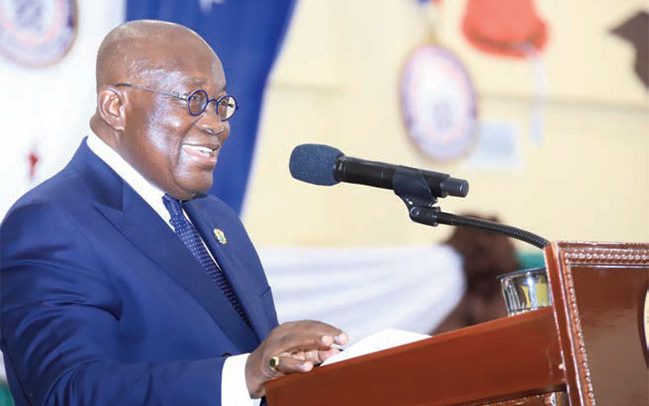President Akufo-Addo
President Akufo-Addo has accepted to serve as a champion for the attainment of direct election of members to the ECOWAS Parliament.
He will be working with former President of Niger, Mahamadou Issoufou as Chief Advocate and Dr. Mohamed Ibn Chambas, former President of the ECOWAS Commission, as the Assistant Chief Advocate for the development of a roadmap to direct elections of members to the ECOWAS Parliament.
The President accepted his new role upon the request of the ECOWAS Speaker, Dr. Sidie Tunis, who relished the firm support the President has given to the parliament in his current position as Chairman of Authority of Heads of State and Government of ECOWAS.
Speaking at the opening ceremony of the fifth legislature high level parliamentary seminar in Winneba on Wednesday, Dr. Tunis praised President Akufo-Addo for his commitment despite challenges from the COVID-19 pandemic, economic challenges, terrorism and extremism in the sub-region.
“We are proud of him, and his achievement as a statesman, a leader and democrat. Since assuming his role as Chair of the Authority, he has diligently supported the works of the Parliament and has exercised excellent leadership in handling the affairs of the region,” he said.
Supplementary Act of ECOWAS provides that representatives shall be elected by direct universal suffrage by the citizens of member states.
It also provides a transitional period at which time the National Assemblies of member states or their equivalent institutions or organs, shall elect such representatives.
Dr. Tunis said that the cardinal objective of the current legislature was to make the direct election of members from National Assemblies one of the most enduring democratic legacies of the legislature.
“Despite restrictions and difficulties associated with executing normal activities, occasioned by the COVID-19 pandemic, the Parliament was able to kick start the process last year,” he said.
President Akufo-Addo, in his remarks, said that the direct election of members will give the community parliament the needed stability and autonomy to function.
The feat, he added, would help harmonise past and current legislations in an era of globalisation and digitisation of technology and telecommunications.
Protocol establishing the community parliament gave it consultative and advisory role.
The 2006 restructuring of all ECOWAS institutions however allowed for the role of parliament to be progressively enhanced to a co-decision making body and subsequently to a law making body.
The restructuring of the parliament to give it the right of initiating legislations, he said, has become imperative.
“This I believe will give parliament the democratic legitimacy to assist in deepening democracy and good governance at the regional level,” he said.
He asked the ECOWAS Commission to take urgent steps towards the review of protocols on democracy and good governance to take account of contemporary developments.
“I associate myself with the call to you members of parliament to contribute to this process,” he added.
By Issah Mohammed


